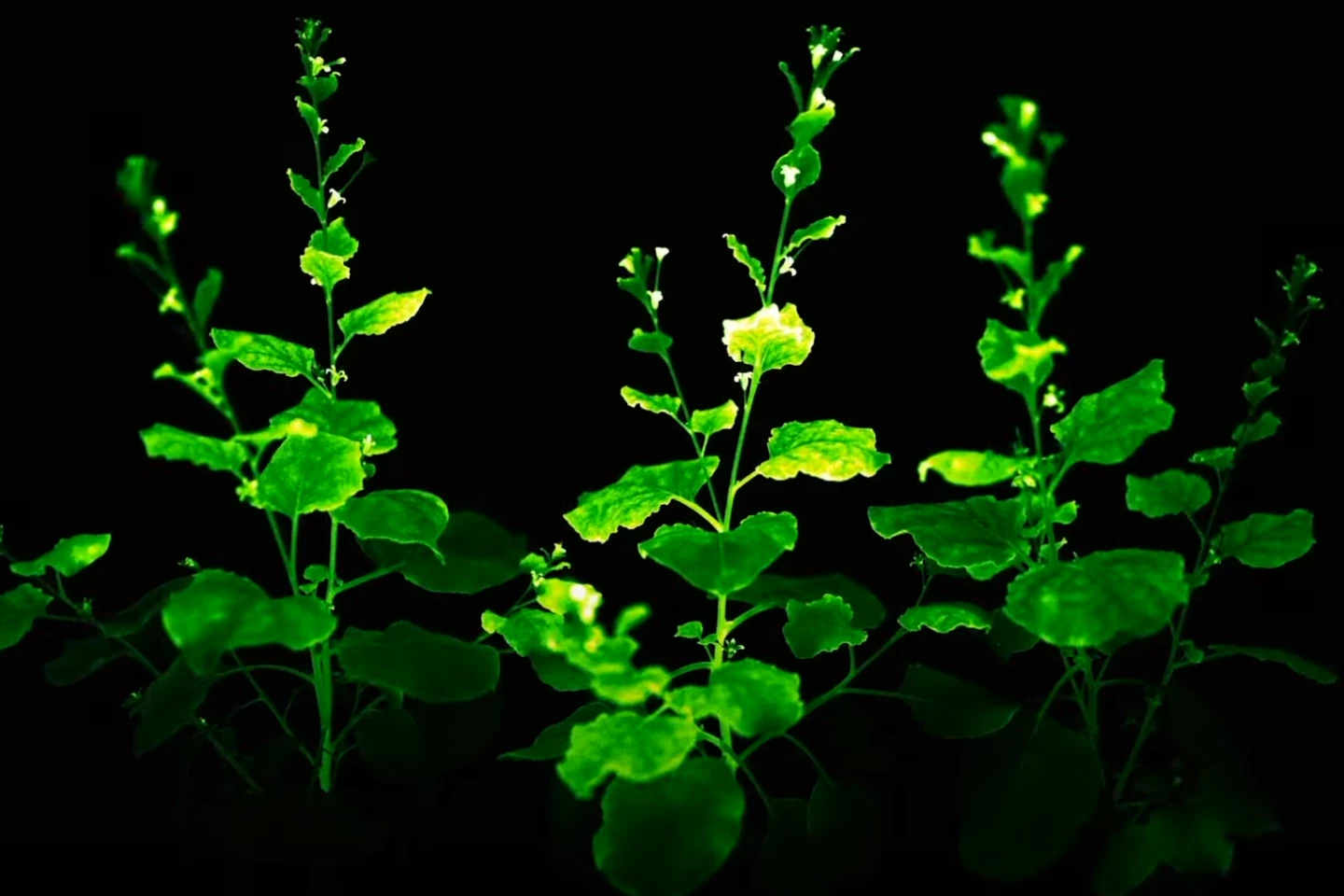The USDA has approved Light Bio's "Firefly Petunias," and the company is taking US$29 pre-orders on these remarkable gene-edited houseplants. They glow in the dark, making them a captivating home decor addition for science buffs.
They're indistinguishable from regular petunias during the day, but thanks to some genes spliced in from naturally bioluminescent mushrooms, their leaves and flowers emit a soft green glow in the dark, increasing in intensity around the edges and at places of new growth. The effect is extraordinary, accentuating the natural patterns in the plant.
The healthier the plant, and the more sunlight it gets, the brighter the glow – up to somewhere around the level of moonlight. Unlike other bioluminescent plants and animals, these don't requite any special food or treatment. And because their glow is proportional to metabolic processes, you can make it brighter by sticking a ripe banana skin next to them, which will emit an ethylene growth hormone that ramps up the plants' metabolism.
Where some previous glowing plants have been designed using firefly genes, the Firefly Petunias use the same process behind these glowing Russian tobacco plants we reported on in 2020.
Essentially, the lignin that gives plant cells their strength and stiffness contains a molecule called caffeic acid. The same molecule is also found in bioluminescent mushrooms, but these also have a pair of enzymes that convert caffeic acid into a luminescent molecule called luciferin. A third enzyme oxidizes the luciferin, releasing a photon, and a fourth converts the oxidized luciferin back into caffeic acid so the glowing process can start again. The DNA spliced into these Firefly Petunias lets them produce the same enzymes to harness the same effect.
Yes, it's not a particularly new piece of science – the first such bioluminescent plants were demonstrated in laboratories more than 35 years ago. But thanks to US Department of Agriculture approval, they're now fully approved for unrestricted sale in the contiguous United States. And personally I think they look pretty amazing, houseplants by day and a breathtaking representation of genetic engineering by night.
Light Bio has now stuck a price tag on them – US$29 for a 4-inch pot with developing buds, which will grow to about 8-10 inches in size – and is accepting pre-orders on the first batch of 50,000 orders in April, according to Nature.
Sadly, the company is not shipping elsewhere at this stage.

Source: Light Bio






